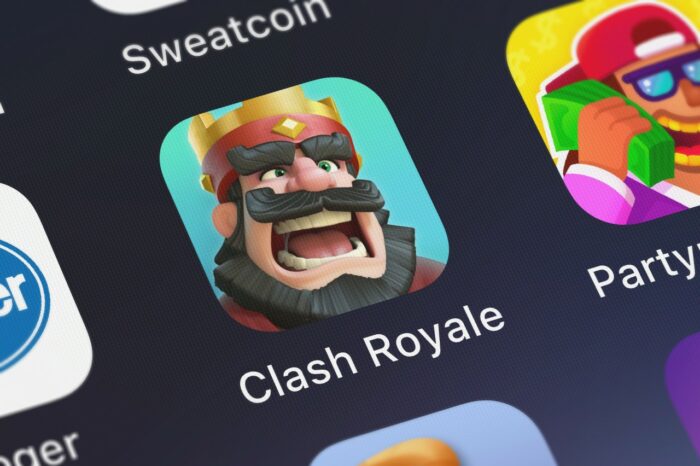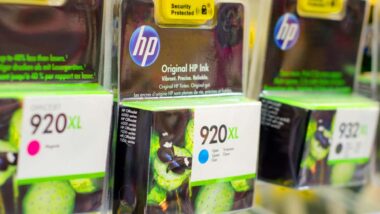Top Class Actions’s website and social media posts use affiliate links. If you make a purchase using such links, we may receive a commission, but it will not result in any additional charges to you. Please review our Affiliate Link Disclosure for more information.

Update:
- A California federal judge permanently dismissed a class action lawsuit alleging that video game maker Supercell Oy, which released Brawl Stars and Clash Royale, designed features to “exploit and manipulate the addictive nature of human psychology” as slot machines and other forms of gambling do.
- In an order issued Jan. 3., U.S. District Judge Edward J. Davila granted Supercell Oy’s motion to dismiss for a second and final time.
- The judge ruled that the plaintiffs did not plausibly allege that offering in-game purchases for “loot boxes” was akin to offering “illegal slot machines or controlled games.”
- Judge Davila added that the plaintiffs lacked standing because the transactions involving virtual currency for loot boxes don’t constitute an economic injury.
Clash Royals gambling class action lawsuit overview:
- Who: A class action lawsuit gambling lawsuit against video game maker Supercell Oy has been tossed out by a California judge.
- What: The judge said the lawsuit lacked standing under the UCL and CLRA, as they required the plaintiff to have suffered an economic injury.
- Where: The lawsuit was filed in California.
(Sept. 27, 2021)
A class action lawsuit alleging that video game maker Supercell Oy, which released Brawl Stars and Clash Royale, designed features to “exploit and manipulate the addictive nature of human psychology,” just as slot machines and other forms of gambling do, has been tossed out by a California judge.
US District Judge Edward J. Davila ruled that the class action lawsuit, filed by lead Plaintiff Pete Mai, failed to meet standing requirements under California’s Unfair Competition Law California’s Consumers Legal Remedies Act.
Mai, who has played Clash Royale since at least 2016, said he had spent over $150 to purchase gems for loot boxes in Clash Royale, which he said function as illegal “slot machines or devices” under state law.
Although Brawl Stars and Clash Royale are both free to download on Apple or Google Android devices, players may purchase virtual in-game currency, or “gems,” through the Apple App Store or Google Play using a credit card or gift card, his claim explains.
Gems can be used to speed up actions in the game and to purchase “loot boxes,” which he further describes as “randomized chances within the game to win valuable players, weapons, costumes or player appearance . . . or some other in-game item or feature that is designed to deliver additional value by enhancing game-play and providing cosmetic value.”
He alleged that various visual and sound features of loot boxes in the games were designed to “exploit and manipulate the addictive nature of human psychology” just as slot machines and other forms of gambling do.
Clash Royale player lacks standing
Judge Davila agreed with Supercell and past decisions in similar cases that Mai lacked standing to filed the lawsuit under the UCL and CLRA, as they required him to have suffered “a loss or deprivation of money or property sufficient to qualify as injury in fact, i.e., economic injury.”
Supercell said in the motion to dismiss, and Davila agreed, that Mai received exactly what he paid real-world currency for: gems to use as he pleased in Clash Royale. “That Mai chose to use his gems on loot boxes does not create an economic injury because he got what he paid for,” Davila wrote.
Davila also sided with Supercell that their games were not “slot machines” as defined by law as they were not machines, apparatus or devices.
Davila agreed with the decision made in a similar case, Taylor v. Apple — which was brought by Mai’s counsel – in which the judge ruled that in-game currency could not be compared to gambling chips because the in-game currency could not be converted back into cash.
“Ultimately, the Taylor court found that plaintiffs lacked standing on their UCL claim and thus also their CLRA and unjust enrichment claims, and dismissed the entire complaint. The Court sees no reason to depart from that conclusion.”
Have you ever made an in-game purchase? Were you aware of how much you were spending? Share your experiences in the comments below.
Mai is represented by Timothy G. Blood, Thomas J. O’Reardon II and Craig W. Straub of Blood Hurst & O’Reardon LLP; and by Andrew J. Brown of the Law Offices of Andrew J. Brown.
The Clash Royale Game Loot Box Gambling Class Action Lawsuit is Peter Mai, et al. v. Supercell Oy, Case No. 5:20-cv-05573, in the U.S. District Court for the Northern District of California.
Don’t Miss Out!
Check out our list of Class Action Lawsuits and Class Action Settlements you may qualify to join!
Read About More Class Action Lawsuits & Class Action Settlements:
- Marvel Cries Foul Over Copyright Termination Notice Filed by Heirs of Former Comic Book Writer
- Amazon Sales Tax on Virtual Items Violates Its Own Policy, Tax Laws, Says Class Action
- Amazon ‘Virtual Try-On’ Collects Face Scans Without Consent, Disclosure, Says Class Action
- Uber Versus Lyft: Which One is Safer?















5 thoughts onClass Action Claiming Clash Royale Video Game Makers Promote Gambling Tossed
Add me
Add me to this please
Please add me 530 313 3202
Add me
Add me to this class action suit